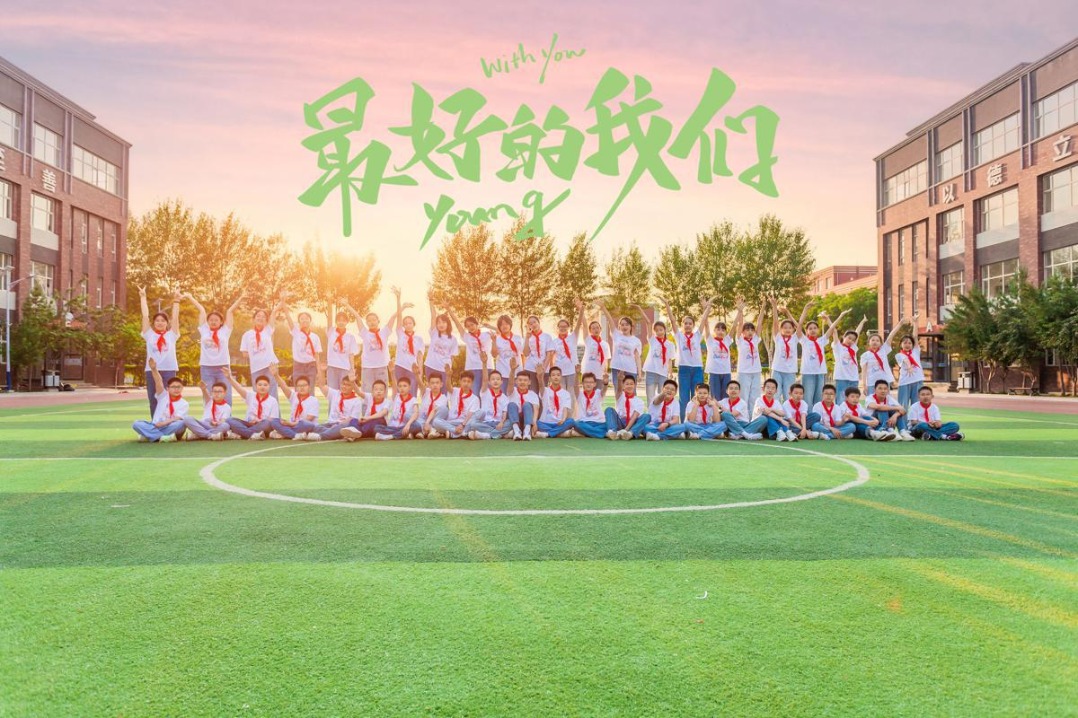In times of change, what it means to be Chinese


Major survey sheds light on qualities of citizens behind the country's rapid development and achievements over the past decades
When Dutchman Dimitri De Boer arrived in Beijing nearly two decades ago, the skies were hazy but locals did not seem to believe it had anything to do with air pollution.
People "definitely didn't think about the environment", said De Boer, 42, who is based in the Chinese capital and heads the China program of the environmental law charity ClientEarth.
But Chinese attitudes and understanding of the environment "changed dramatically" in the years that followed, when concerns about the air and other green issues affecting their country were raised, he said.
"I don't think many foreign people knew that Chinese people would be as environmentally friendly as they are," De Boer said.
"Usually, they would think Chinese people were the polluters. But within the international community, China is actually more pro-climate than other countries. The world sees China playing a bigger role in climate issues," said De Boer, adding that there have since been "many innovations in environmental governance and technologies in China".
The greater stake that Chinese people take in major issues that affect their lives at home are part of the evolving attitudes and views that foreigners have of them-and those that Chinese hold of themselves-in the seminal past decades that saw China's rapid rise to become a leading player on the international stage.
To track the latest developments and better understand the changes, China Daily carried out an extensive survey in May using various multimedia channels, including the Sina Weibo micro-blogging platform and other major social media networks.
Nearly 10,000 respondents were interviewed about various aspects and attitudes related to the Chinese-with Chinese and foreign interviewees asked to pick the top qualities that best described the people making up the world's second-largest economy.
More than 40 percent of about 7,300 of those polled via Sina Weibo chose "patriotic" and "family minded" as the main Chinese attributes, which also emerged as one of the top terms picked by respondents on other popular platforms.
More than one-third of those polled used "industrious" and "innovative" as the other defining traits of Chinese people, according to the survey.
Interviewees also picked "virtuous" and "frugal" as some of the characteristics of Chinese people, the polled showed. Similarly, Chinese adherence to "discipline" and "collectivism" were cited as some of their main features.
Out of about 2,000 respondents on social networking portal Twitter, about one-third of those polled picked "industrious" and "innovative" as the foremost Chinese qualities.
"Patriotic" and "family minded" came a close second, followed by "collectivist, disciplined" and "virtuous, frugal".
Jon Taylor, professor of political science at the University of St. Thomas in Houston, United States, said that while "every nation changes with the times, I think that there are certain qualities about Chinese people that are timeless: Patriotic, family-minded, industrious, innovative, disciplined, virtuous, friendly, humorous, loyal, easy-going, realistic, considerate, strong, and pragmatic".
Taylor cited the War of Resistance Against Japanese Aggression (1931-45) and the forming of New China as crucial events that bring to mind "qualities such as patriotism, fierceness, tenaciousness, and resilience. During the period of reform and opening-up, qualities such as entrepreneurial, patient, serious, hardworking, enthusiastic, practical, fair-minded, diligent, and self-sacrificing stand out".
"But what is important to understand is that these qualities are all timeless descriptors of Chinese people ... . So, in this respect, I wouldn't say that the qualities of Chinese people have necessarily changed over the previous decades as much as some of these qualities have gained more notice as the times have changed," Taylor said.





































